Passenger Vehicles
Light Commercial Vehicle (LCV)
Heavy Commercial Vehicle (HCV)
Off-Highway Vehicle
Regenerating Type Filters
Disposable Type Filters
Cordierite Wall Flow Filters
Silicon Carbide Wall Flow Filters
Ceramic Fiber Filters
Other Substrates
Original Equipment Manufacturer (OEM)
Aftersales
North America Diesel Particulate Filter by Vehicle TypePassenger Vehicles
Light Commercial Vehicle (LCV)
Heavy Commercial Vehicle (HCV)
Off-Highway Vehicle
North America Diesel Particulate Filter by Product TypeRegenerating Type Filters
Disposable Type Filters
North America Diesel Particulate Filter by Material TypeCordierite Wall Flow Filters
Silicon Carbide Wall Flow Filters
Ceramic Fiber Filters
Other Substrates
North America Diesel Particulate Filter by Sales ChannelOriginal Equipment Manufacturer (OEM)
Aftersales
US Diesel Particulate Filter by Vehicle TypePassenger Vehicles
Light Commercial Vehicle (LCV)
Heavy Commercial Vehicle (HCV)
Off-Highway Vehicle
US Diesel Particulate Filter by Product TypeRegenerating Type Filters
Disposable Type Filters
US Diesel Particulate Filter by Material TypeCordierite Wall Flow Filters
Silicon Carbide Wall Flow Filters
Ceramic Fiber Filters
Other Substrates
US Diesel Particulate Filter by Sales ChannelOriginal Equipment Manufacturer (OEM)
Aftersales
CANADA Diesel Particulate Filter by Vehicle TypePassenger Vehicles
Light Commercial Vehicle (LCV)
Heavy Commercial Vehicle (HCV)
Off-Highway Vehicle
CANADA Diesel Particulate Filter by Product TypeRegenerating Type Filters
Disposable Type Filters
CANADA Diesel Particulate Filter by Material TypeCordierite Wall Flow Filters
Silicon Carbide Wall Flow Filters
Ceramic Fiber Filters
Other Substrates
CANADA Diesel Particulate Filter by Sales ChannelOriginal Equipment Manufacturer (OEM)
Aftersales
Europe Diesel Particulate Filter by Vehicle TypePassenger Vehicles
Light Commercial Vehicle (LCV)
Heavy Commercial Vehicle (HCV)
Off-Highway Vehicle
Europe Diesel Particulate Filter by Product TypeRegenerating Type Filters
Disposable Type Filters
Europe Diesel Particulate Filter by Material TypeCordierite Wall Flow Filters
Silicon Carbide Wall Flow Filters
Ceramic Fiber Filters
Other Substrates
Europe Diesel Particulate Filter by Sales ChannelOriginal Equipment Manufacturer (OEM)
Aftersales
Germany Outlook (USD Billion, 2018-2032)
Germany Diesel Particulate Filter by Vehicle TypePassenger Vehicles
Light Commercial Vehicle (LCV)
Heavy Commercial Vehicle (HCV)
Off-Highway Vehicle
Germany Diesel Particulate Filter by Product TypeRegenerating Type Filters
Disposable Type Filters
Germany Diesel Particulate Filter by Material TypeCordierite Wall Flow Filters
Silicon Carbide Wall Flow Filters
Ceramic Fiber Filters
Other Substrates
Germany Diesel Particulate Filter by Sales ChannelOriginal Equipment Manufacturer (OEM)
Aftersales
France Diesel Particulate Filter by Vehicle TypePassenger Vehicles
Light Commercial Vehicle (LCV)
Heavy Commercial Vehicle (HCV)
Off-Highway Vehicle
France Diesel Particulate Filter by Product TypeRegenerating Type Filters
Disposable Type Filters
France Diesel Particulate Filter by Material TypeCordierite Wall Flow Filters
Silicon Carbide Wall Flow Filters
Ceramic Fiber Filters
Other Substrates
France Diesel Particulate Filter by Sales ChannelOriginal Equipment Manufacturer (OEM)
Aftersales
UK Diesel Particulate Filter by Vehicle TypePassenger Vehicles
Light Commercial Vehicle (LCV)
Heavy Commercial Vehicle (HCV)
Off-Highway Vehicle
UK Diesel Particulate Filter by Product TypeRegenerating Type Filters
Disposable Type Filters
UK Diesel Particulate Filter by Material TypeCordierite Wall Flow Filters
Silicon Carbide Wall Flow Filters
Ceramic Fiber Filters
Other Substrates
UK Diesel Particulate Filter by Sales ChannelOriginal Equipment Manufacturer (OEM)
Aftersales
ITALY Diesel Particulate Filter by Vehicle TypePassenger Vehicles
Light Commercial Vehicle (LCV)
Heavy Commercial Vehicle (HCV)
Off-Highway Vehicle
ITALY Diesel Particulate Filter by Product TypeRegenerating Type Filters
Disposable Type Filters
ITALY Diesel Particulate Filter by Material TypeCordierite Wall Flow Filters
Silicon Carbide Wall Flow Filters
Ceramic Fiber Filters
Other Substrates
ITALY Diesel Particulate Filter by Sales ChannelOriginal Equipment Manufacturer (OEM)
Aftersales
Spain Diesel Particulate Filter by Vehicle TypePassenger Vehicles
Light Commercial Vehicle (LCV)
Heavy Commercial Vehicle (HCV)
Off-Highway Vehicle
Spain Diesel Particulate Filter by Product TypeRegenerating Type Filters
Disposable Type Filters
Spain Diesel Particulate Filter by Material TypeCordierite Wall Flow Filters
Silicon Carbide Wall Flow Filters
Ceramic Fiber Filters
Other Substrates
Spain Diesel Particulate Filter by Sales ChannelOriginal Equipment Manufacturer (OEM)
Aftersales
Rest Of Europe Diesel Particulate Filter by Vehicle TypePassenger Vehicles
Light Commercial Vehicle (LCV)
Heavy Commercial Vehicle (HCV)
Off-Highway Vehicle
Rest Of Europe Diesel Particulate Filter by Product TypeRegenerating Type Filters
Disposable Type Filters
Rest Of Europe Diesel Particulate Filter by Material TypeCordierite Wall Flow Filters
Silicon Carbide Wall Flow Filters
Ceramic Fiber Filters
Other Substrates
REST OF EUROPE Diesel Particulate Filter by Sales ChannelOriginal Equipment Manufacturer (OEM)
Aftersales
Asia-Pacific Diesel Particulate Filter by Vehicle TypePassenger Vehicles
Light Commercial Vehicle (LCV)
Heavy Commercial Vehicle (HCV)
Off-Highway Vehicle
Asia-Pacific Diesel Particulate Filter by Product TypeRegenerating Type Filters
Disposable Type Filters
Asia-Pacific Diesel Particulate Filter by Material TypeCordierite Wall Flow Filters
Silicon Carbide Wall Flow Filters
Ceramic Fiber Filters
Other Substrates
Asia-Pacific Diesel Particulate Filter by Sales ChannelOriginal Equipment Manufacturer (OEM)
Aftersales
China Diesel Particulate Filter by Vehicle TypePassenger Vehicles
Light Commercial Vehicle (LCV)
Heavy Commercial Vehicle (HCV)
Off-Highway Vehicle
China Diesel Particulate Filter by Product TypeRegenerating Type Filters
Disposable Type Filters
China Diesel Particulate Filter by Material TypeCordierite Wall Flow Filters
Silicon Carbide Wall Flow Filters
Ceramic Fiber Filters
Other Substrates
China Diesel Particulate Filter by Sales ChannelOriginal Equipment Manufacturer (OEM)
Aftersales
Japan Diesel Particulate Filter by Vehicle TypePassenger Vehicles
Light Commercial Vehicle (LCV)
Heavy Commercial Vehicle (HCV)
Off-Highway Vehicle
Japan Diesel Particulate Filter by Product TypeRegenerating Type Filters
Disposable Type Filters
Japan Diesel Particulate Filter by Material TypeCordierite Wall Flow Filters
Silicon Carbide Wall Flow Filters
Ceramic Fiber Filters
Other Substrates
Japan Diesel Particulate Filter by Sales ChannelOriginal Equipment Manufacturer (OEM)
Aftersales
India Diesel Particulate Filter by Vehicle TypePassenger Vehicles
Light Commercial Vehicle (LCV)
Heavy Commercial Vehicle (HCV)
Off-Highway Vehicle
India Diesel Particulate Filter by Product TypeRegenerating Type Filters
Disposable Type Filters
India Diesel Particulate Filter by Material TypeCordierite Wall Flow Filters
Silicon Carbide Wall Flow Filters
Ceramic Fiber Filters
Other Substrates
India Diesel Particulate Filter by Sales ChannelOriginal Equipment Manufacturer (OEM)
Aftersales
Australia Diesel Particulate Filter by Vehicle TypePassenger Vehicles
Light Commercial Vehicle (LCV)
Heavy Commercial Vehicle (HCV)
Off-Highway Vehicle
Australia Diesel Particulate Filter by Product TypeRegenerating Type Filters
Disposable Type Filters
Australia Diesel Particulate Filter by Material TypeCordierite Wall Flow Filters
Silicon Carbide Wall Flow Filters
Ceramic Fiber Filters
Other Substrates
Australia Diesel Particulate Filter by Sales ChannelOriginal Equipment Manufacturer (OEM)
Aftersales
Rest of Asia-Pacific Diesel Particulate Filter by Vehicle TypePassenger Vehicles
Light Commercial Vehicle (LCV)
Heavy Commercial Vehicle (HCV)
Off-Highway Vehicle
Rest of Asia-Pacific Diesel Particulate Filter by Product TypeRegenerating Type Filters
Disposable Type Filters
Rest of Asia-Pacific Diesel Particulate Filter by Material TypeCordierite Wall Flow Filters
Silicon Carbide Wall Flow Filters
Ceramic Fiber Filters
Other Substrates
Rest of Asia-Pacific Diesel Particulate Filter by Sales ChannelOriginal Equipment Manufacturer (OEM)
Aftersales
Rest of the World Diesel Particulate Filter by Vehicle TypePassenger Vehicles
Light Commercial Vehicle (LCV)
Heavy Commercial Vehicle (HCV)
Off-Highway Vehicle
Rest of the World Diesel Particulate Filter by Product TypeRegenerating Type Filters
Disposable Type Filters
Rest of the World Diesel Particulate Filter by Material TypeCordierite Wall Flow Filters
Silicon Carbide Wall Flow Filters
Ceramic Fiber Filters
Other Substrates
Rest of the World Diesel Particulate Filter by Sales ChannelOriginal Equipment Manufacturer (OEM)
Aftersales
Middle East Diesel Particulate Filter by Vehicle TypePassenger Vehicles
Light Commercial Vehicle (LCV)
Heavy Commercial Vehicle (HCV)
Off-Highway Vehicle
Middle East Diesel Particulate Filter by Product TypeRegenerating Type Filters
Disposable Type Filters
Middle East Diesel Particulate Filter by Material TypeCordierite Wall Flow Filters
Silicon Carbide Wall Flow Filters
Ceramic Fiber Filters
Other Substrates
Middle East Diesel Particulate Filter by Sales ChannelOriginal Equipment Manufacturer (OEM)
Aftersales
Africa Diesel Particulate Filter by Vehicle TypePassenger Vehicles
Light Commercial Vehicle (LCV)
Heavy Commercial Vehicle (HCV)
Off-Highway Vehicle
Africa Diesel Particulate Filter by Product TypeRegenerating Type Filters
Disposable Type Filters
Africa Diesel Particulate Filter by Material TypeCordierite Wall Flow Filters
Silicon Carbide Wall Flow Filters
Ceramic Fiber Filters
Other Substrates
Africa Diesel Particulate Filter by Sales ChannelOriginal Equipment Manufacturer (OEM)
Aftersales
Latin America Diesel Particulate Filter by Vehicle TypePassenger Vehicles
Light Commercial Vehicle (LCV)
Heavy Commercial Vehicle (HCV)
Off-Highway Vehicle
Latin America Diesel Particulate Filter by Product TypeRegenerating Type Filters
Disposable Type Filters
Latin America Diesel Particulate Filter by Material TypeCordierite Wall Flow Filters
Silicon Carbide Wall Flow Filters
Ceramic Fiber Filters
Other Substrates
Latin America Diesel Particulate Filter by Sales ChannelOriginal Equipment Manufacturer (OEM)
Aftersales


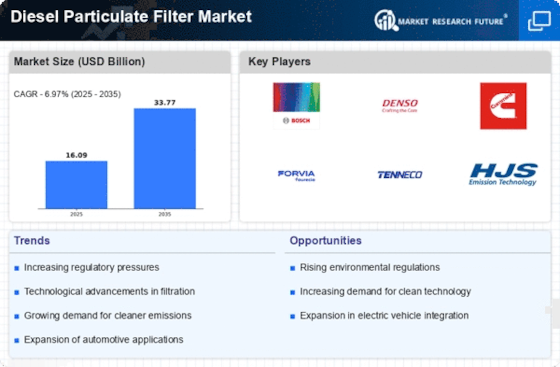

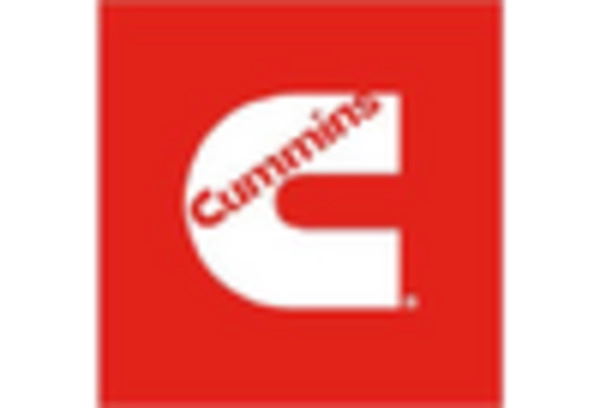

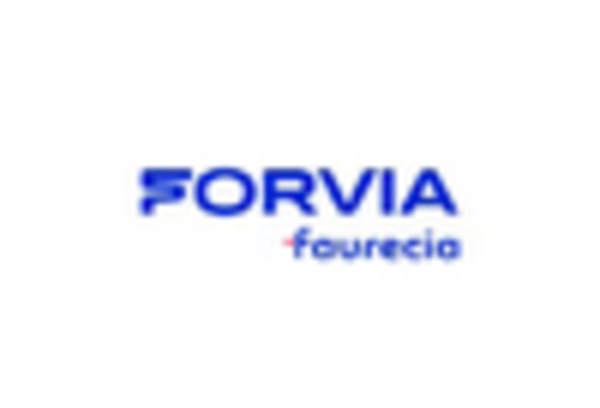
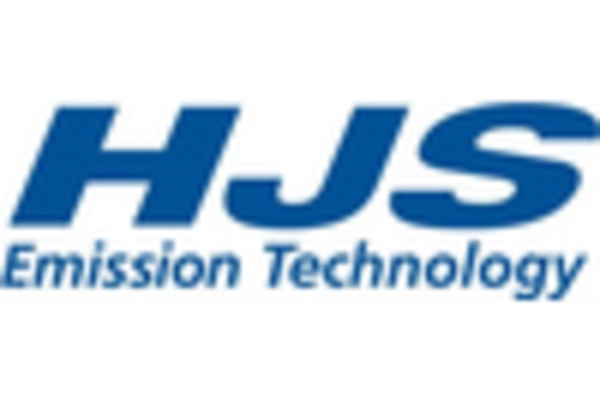
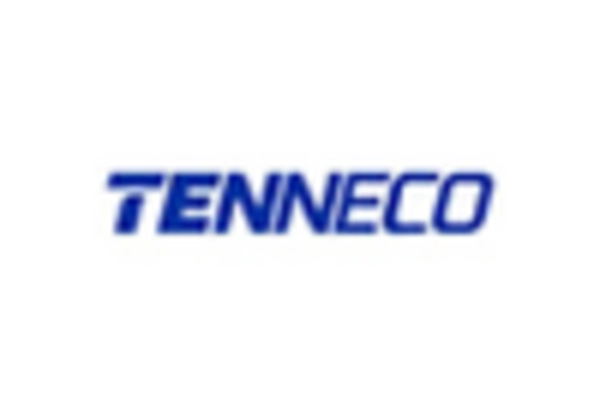









Leave a Comment